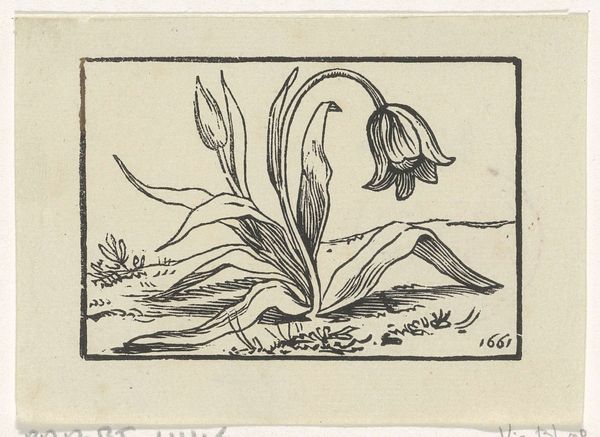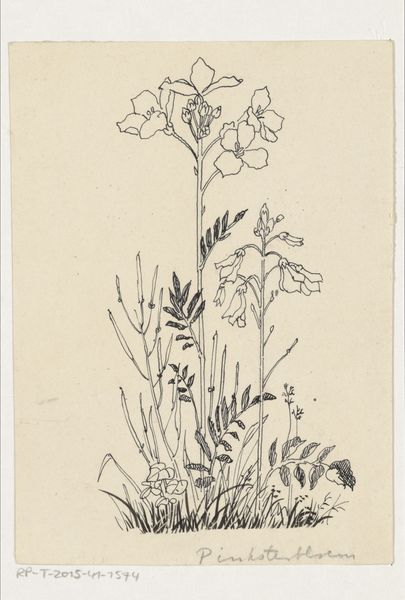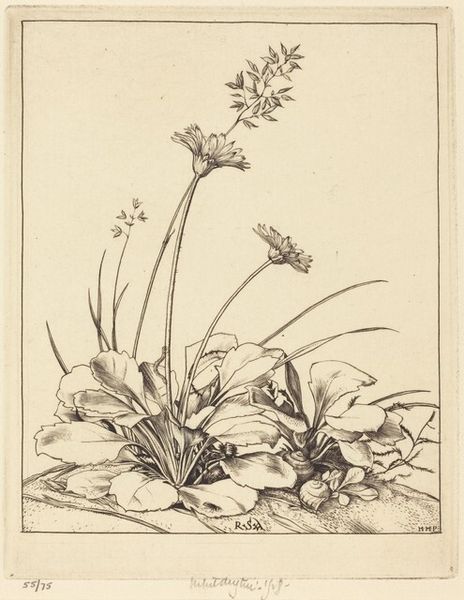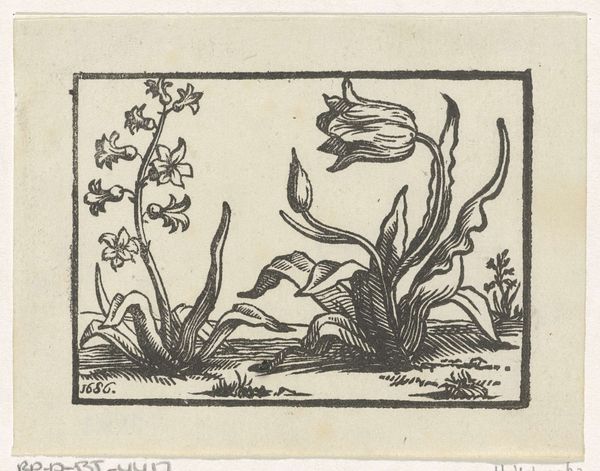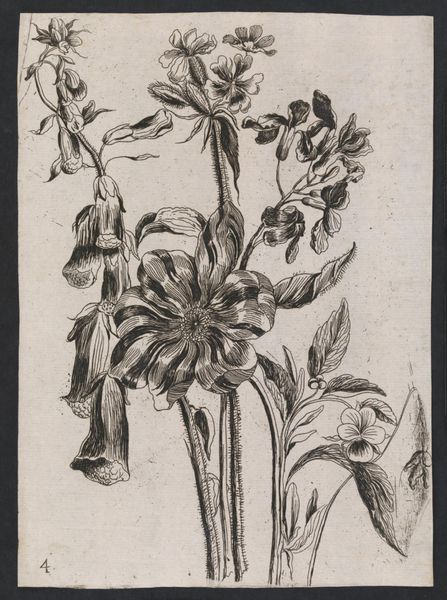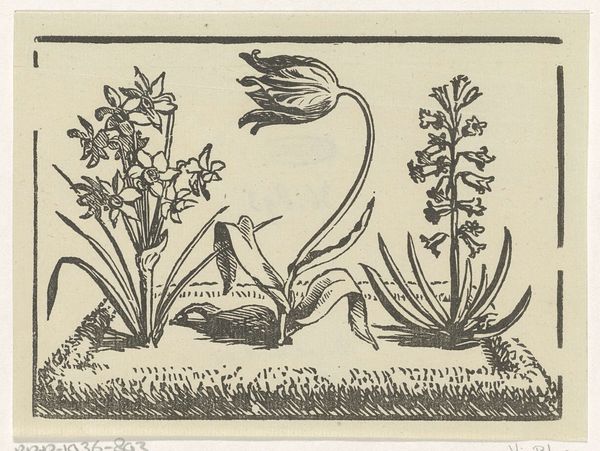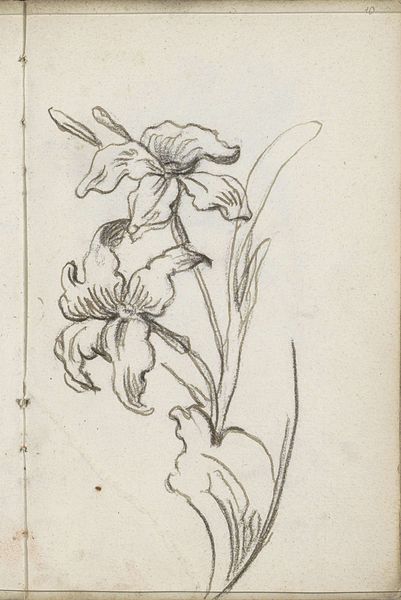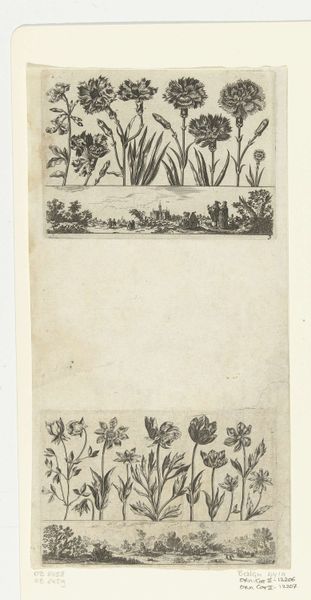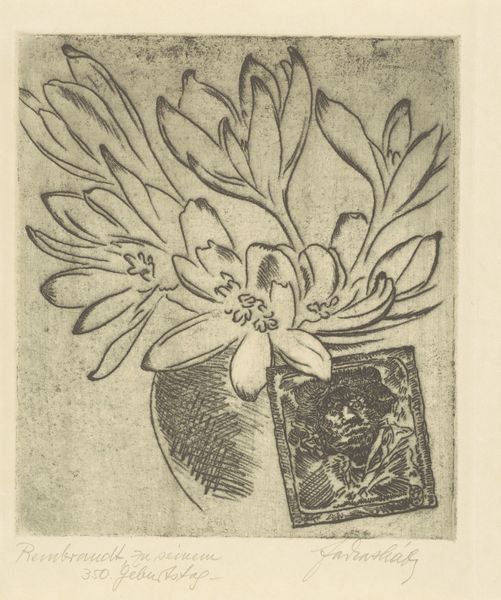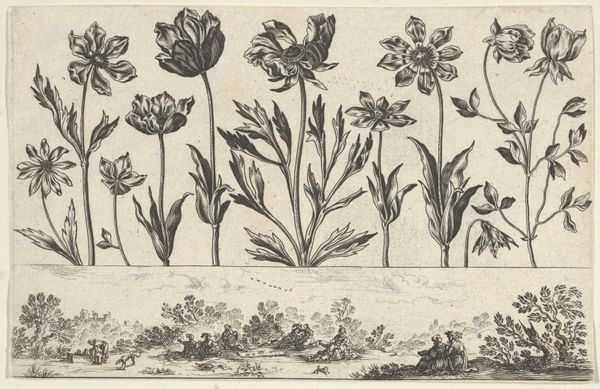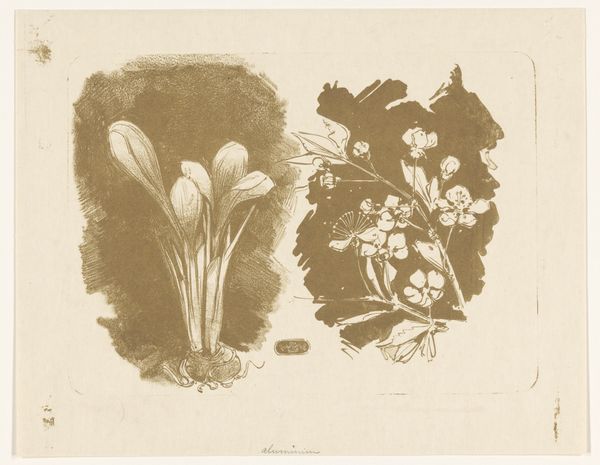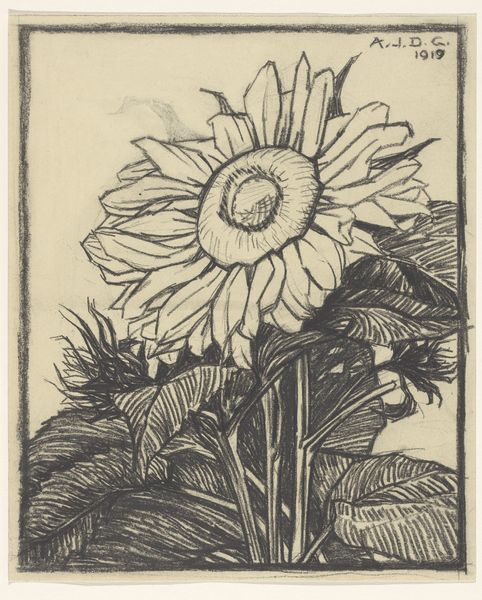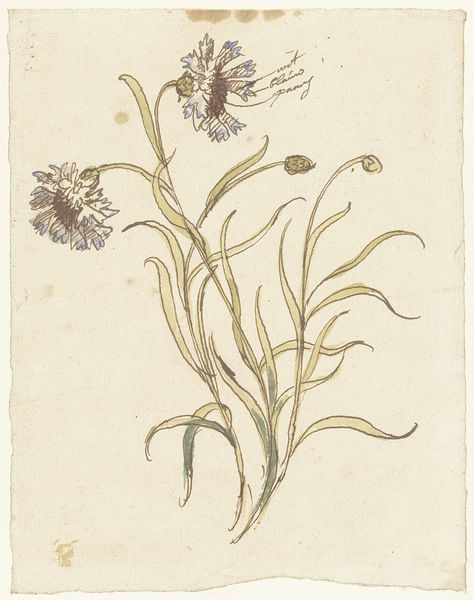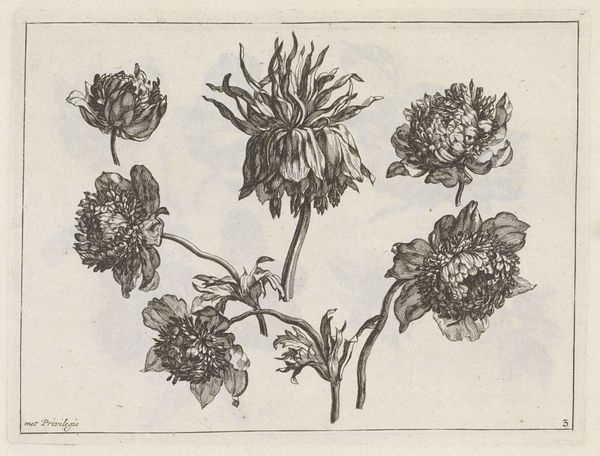
drawing, ink, pen
#
drawing
#
blue ink drawing
#
pen drawing
#
dutch-golden-age
#
pen illustration
#
pen sketch
#
old engraving style
#
flower
#
personal sketchbook
#
ink
#
pen-ink sketch
#
line
#
pen work
#
sketchbook drawing
#
pen
#
sketchbook art
Dimensions: height 80 mm, width 65 mm
Copyright: Rijks Museum: Open Domain
Curator: The immediacy of this line drawing really strikes me. Editor: Indeed. This pen and ink sketch, titled "Pots with Carnations," created by Isaac Vincentsz. van der Vinne sometime between 1681 and 1740, captures a delightful botanical scene. The restricted use of blue ink offers an almost monochromatic reading. Curator: I find that the sketch, rendered in what some call an "old engraving style," evokes a sense of nostalgia. Flowers often represent themes like transience and beauty in art history, but carnations specifically were symbols of love and remembrance during the Dutch Golden Age. I am curious about your reaction to the composition and technique. Editor: It’s intriguing how van der Vinne plays with positive and negative space. The stark lines create a simplified yet structured composition, reminiscent of botanical illustrations common in sketchbooks of that period. There’s a deliberate rigidity in the depiction of stems that makes one want to study their shapes and placement relative to each other. Note also the precision in linework. Curator: I agree; it seems Van der Vinne wasn't only creating a lovely image but also documenting horticultural practices, almost like an agricultural manual, don’t you think? Carnations during that time were popular ornamental plants, but this sketch shows they needed some artificial supports. It invites a contemporary viewer to consider not just the aesthetic quality of flower keeping but its actual cultivation. The sketch may point to human desire for beauty, which requires intentional labor. Editor: You have a good point. It certainly allows a unique view into the culture of that period, showing how art was also employed to convey knowledge. The rendering of forms is almost diagrammatic, where each potted plant has its own stage. Perhaps the sketch functioned as a study to capture botanical form—almost proto-photography, when documentation and representation converged into one. Curator: I am grateful for having considered this simple sketch, with an unexpectedly powerful look at the Dutch appreciation of nature, culture, and memory all entwined within humble carnations. Editor: The simple and consistent quality of Van der Vinne’s artwork invites a slow consideration that is full of subtleties about structure and light.
Comments
No comments
Be the first to comment and join the conversation on the ultimate creative platform.
